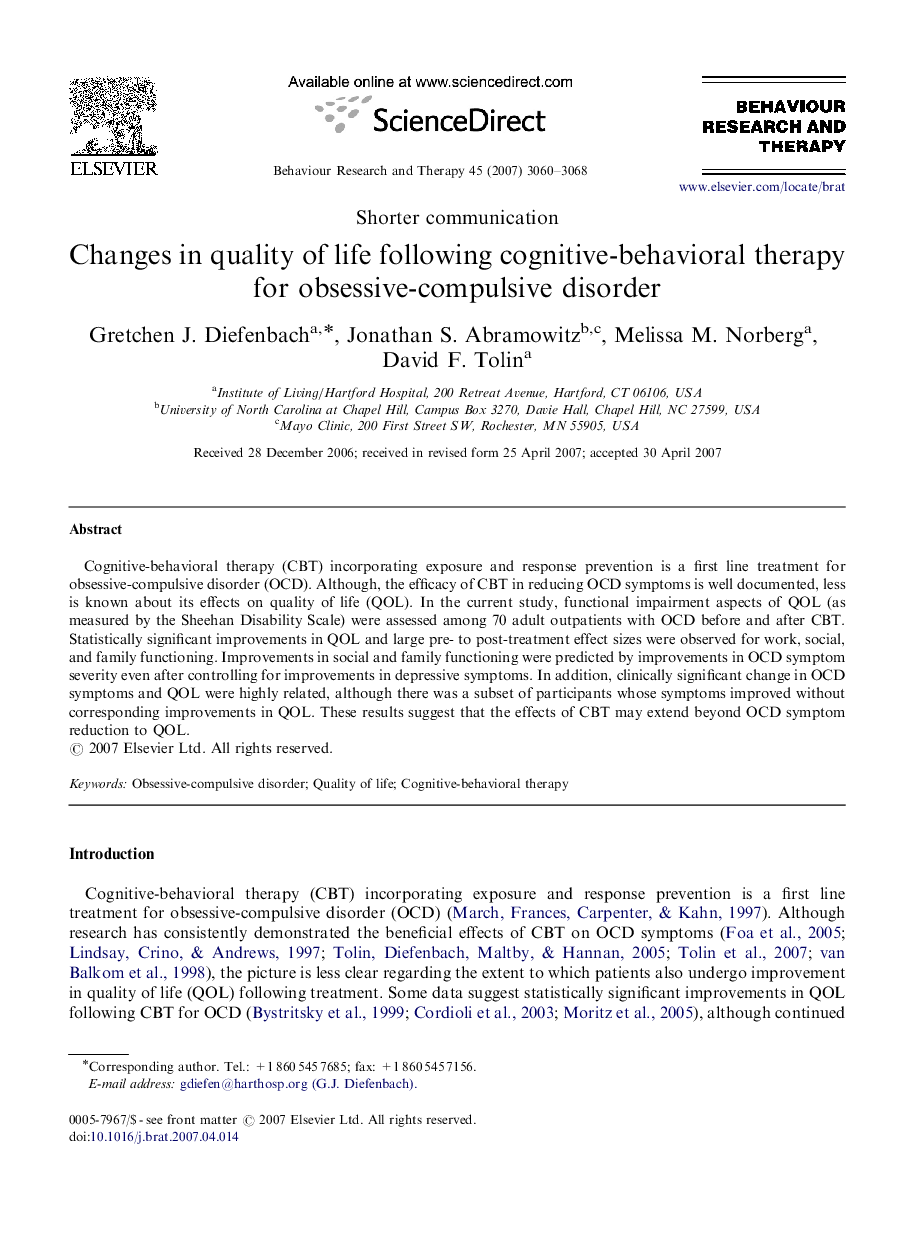| Article ID | Journal | Published Year | Pages | File Type |
|---|---|---|---|---|
| 10444849 | Behaviour Research and Therapy | 2007 | 9 Pages |
Abstract
Cognitive-behavioral therapy (CBT) incorporating exposure and response prevention is a first line treatment for obsessive-compulsive disorder (OCD). Although, the efficacy of CBT in reducing OCD symptoms is well documented, less is known about its effects on quality of life (QOL). In the current study, functional impairment aspects of QOL (as measured by the Sheehan Disability Scale) were assessed among 70 adult outpatients with OCD before and after CBT. Statistically significant improvements in QOL and large pre- to post-treatment effect sizes were observed for work, social, and family functioning. Improvements in social and family functioning were predicted by improvements in OCD symptom severity even after controlling for improvements in depressive symptoms. In addition, clinically significant change in OCD symptoms and QOL were highly related, although there was a subset of participants whose symptoms improved without corresponding improvements in QOL. These results suggest that the effects of CBT may extend beyond OCD symptom reduction to QOL.
Related Topics
Health Sciences
Medicine and Dentistry
Psychiatry and Mental Health
Authors
Gretchen J. Diefenbach, Jonathan S. Abramowitz, Melissa M. Norberg, David F. Tolin,
